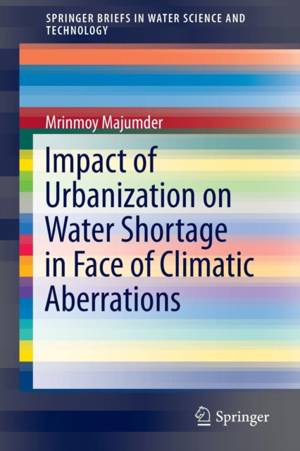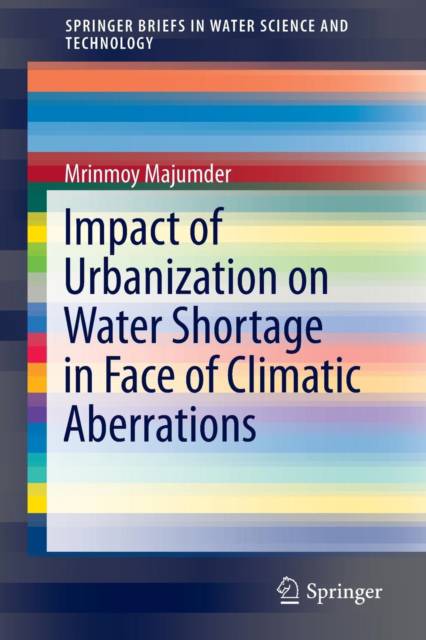
- Retrait gratuit dans votre magasin Club
- 7.000.000 titres dans notre catalogue
- Payer en toute sécurité
- Toujours un magasin près de chez vous
- Retrait gratuit dans votre magasin Club
- 7.000.0000 titres dans notre catalogue
- Payer en toute sécurité
- Toujours un magasin près de chez vous
Impact of Urbanization on Water Shortage in Face of Climatic Aberrations
Mrinmoy MajumderDescription
The uncontrolled utilization of natural resources to supply to the water demands of the ever-growing population has brought about worldwide scarcity. The supply shortage has resulted in conflicts between countries, created prolonged drought, closing of industrial units, shifting of local inhabitants etc. The abnormality in climatic patterns due to global warming has only enhanced the uncertainties. Unregulated discharge of waste water into fresh water resources is also polluting the available water resources and making them non-utilizable. That is why the discrepancy between water supply and demand is slowly but steadily becoming a problem, which may lead to conflict and inequality all over the world. The present investigation is an attempt to find the impact of urbanization in the face of climatic uncertainties on water shortage or scarcity. How is climate responsible? What urbanization factors have an influence on the extent of shortages? What is the role of the socio-economicstatus of the inhabitants? Industrialization? Consumption pattern? Each of the causes and effects were analyzed with the help of data from a climate model, which was then fed into a hydrologic model. The hydrologic output data was then put into various other novel simulation platforms to predict the uncertainties that can be caused by urbanization in various sectors of the regions of interest. The impact was calculated based on IPCC recommended climatic and five distinct urbanization scenarios. The study results will help to predict what is in store of those living in the developing countries. Possible mitigation measures are also discussed.
Spécifications
Parties prenantes
- Auteur(s) :
- Editeur:
Contenu
- Nombre de pages :
- 98
- Langue:
- Anglais
- Collection :
Caractéristiques
- EAN:
- 9789814560726
- Date de parution :
- 06-05-15
- Format:
- Livre broché
- Format numérique:
- Trade paperback (VS)
- Dimensions :
- 156 mm x 234 mm
- Poids :
- 163 g

Les avis
Nous publions uniquement les avis qui respectent les conditions requises. Consultez nos conditions pour les avis.






